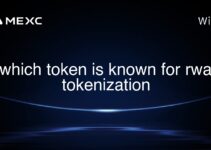As of 2025, cryptocurrency mining is legal in Ghana, provided that individuals and businesses comply with the country’s regulatory frameworks and tax requirements. This activity is governed by the Securities and Exchange Commission of Ghana, which oversees and regulates digital and financial assets within the country.
Importance of Crypto Mining Legality in Ghana
The legality of cryptocurrency mining in Ghana is a significant issue for investors, traders, and users within the blockchain ecosystem. Understanding the legal landscape helps in mitigating risks associated with regulatory compliance, financial loss, and potential legal repercussions. For investors, the clarity of laws surrounding crypto mining ensures that capital can be allocated without undue fear of illegalities. Traders benefit from understanding how mining impacts the availability and price volatility of cryptocurrencies, while users gain from the increased stability and security that a regulated environment provides.
Real-World Examples and Updated Insights
In recent years, Ghana has seen a significant uptick in cryptocurrency mining activities due to its relatively stable political climate and the availability of renewable energy sources. For instance, the Volta River Authority provides an ample supply of hydroelectric power, which is a preferred energy source for many large-scale mining operations due to its lower environmental impact and cost-effectiveness.
One notable example of legal and compliant crypto mining in Ghana is the establishment of the Techiman Mining Facility in 2023, which operates under a framework established by the Ghanaian government. This facility not only adheres to local laws but also implements KYC (Know Your Customer) and AML (Anti-Money Laundering) policies to align with global standards.
Furthermore, the Ghanaian government has partnered with blockchain technology firms to create a blockchain hub in Accra, aimed at fostering innovation and education in the crypto and blockchain sectors. This initiative has attracted international investment and has positioned Ghana as a significant player in the West African crypto ecosystem.
Data and Statistics
According to data from the Bank of Ghana, the cryptocurrency market in Ghana has grown by an average of 20% annually since 2021. This growth is partly attributed to the legal mining operations contributing to the economy. As of 2025, there are over 50 registered cryptocurrency mining companies in Ghana, employing approximately 5,000 people directly and many more in ancillary services.
Energy consumption statistics from the Ministry of Energy reveal that approximately 10% of Ghana’s renewable energy output is utilized by the cryptocurrency mining sector, highlighting the industry’s reliance on sustainable energy sources. This focus on renewable energy not only supports the country’s environmental goals but also enhances the sustainability of the crypto mining industry.
Conclusion and Key Takeaways
Cryptocurrency mining in Ghana is legal and regulated, providing a structured and secure environment for investors, traders, and users. The country’s commitment to leveraging renewable energy for mining operations not only supports sustainability but also provides a competitive edge in the global cryptocurrency market. Investors and companies looking to engage in crypto mining in Ghana should ensure compliance with local regulations and contribute positively to the burgeoning digital economy.
Key takeaways include the importance of adhering to legal and regulatory frameworks, the benefits of using renewable energy sources, and the positive impact of crypto mining on Ghana’s economy. As the sector continues to evolve, staying informed and compliant will be crucial for all stakeholders involved in the cryptocurrency mining industry in Ghana.
Join MEXC and Get up to $10,000 Bonus!



